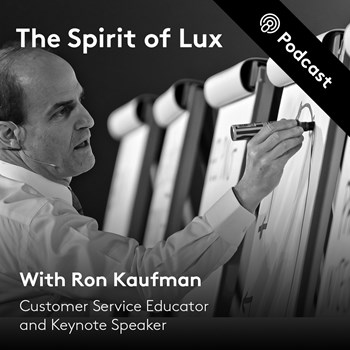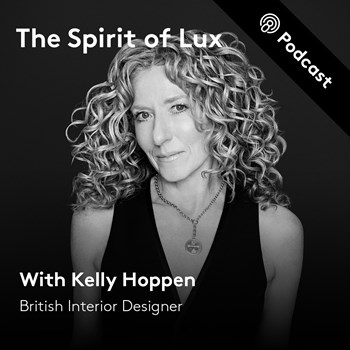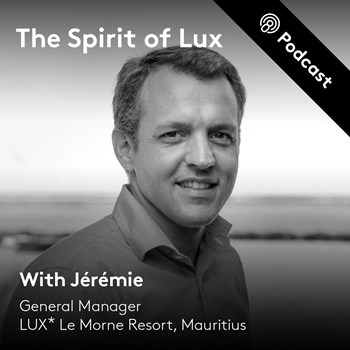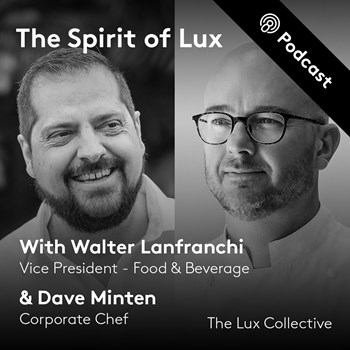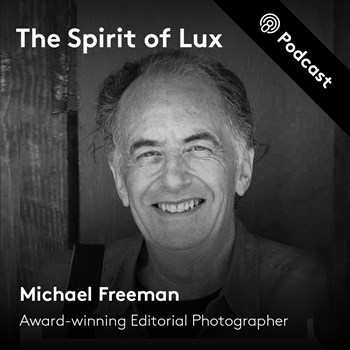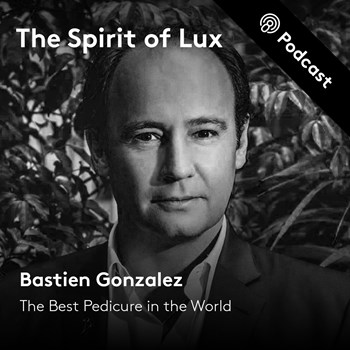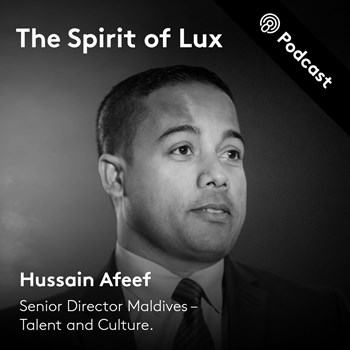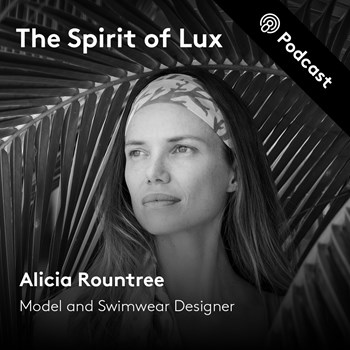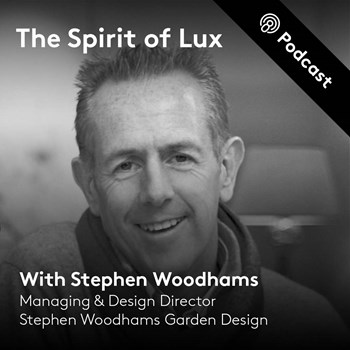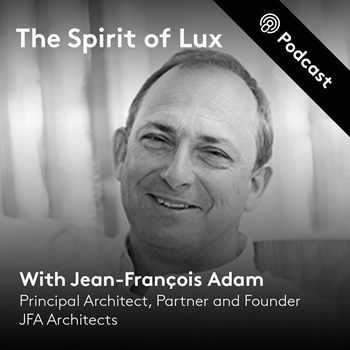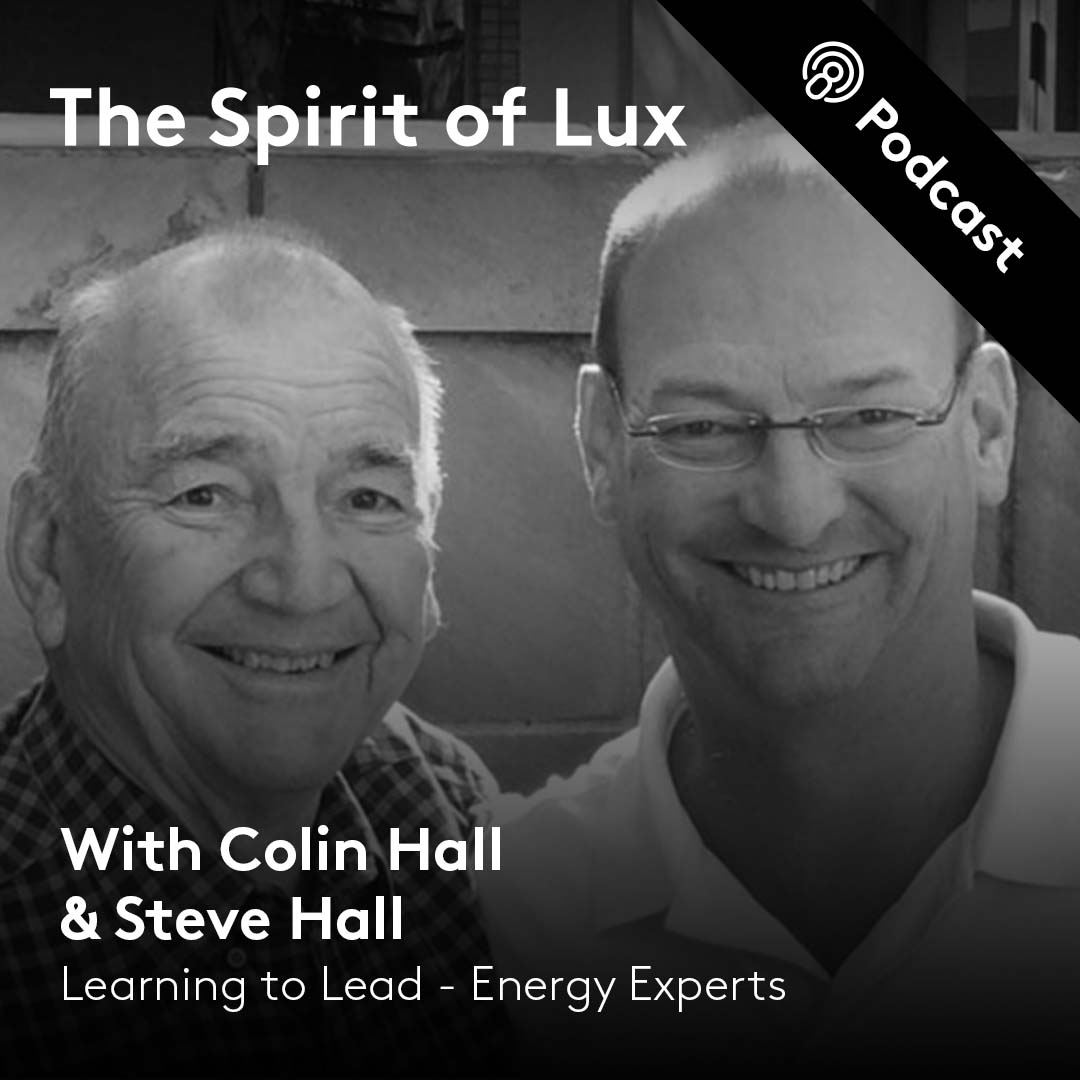 In the 10th episode, Paul speaks with Colin and Steve Hall, the energetic father and son duo taking over Africa by storm through their Seven Habits programme. Always on the run to inspire, instil a sense of hope and uplift people’s sense of self-care and self-motivation to continuously push their own boundaries, Colin and Steve have been and continue to be instrumental in coaching the team members of The Lux Collective to go that extra mile.
In the 10th episode, Paul speaks with Colin and Steve Hall, the energetic father and son duo taking over Africa by storm through their Seven Habits programme. Always on the run to inspire, instil a sense of hope and uplift people’s sense of self-care and self-motivation to continuously push their own boundaries, Colin and Steve have been and continue to be instrumental in coaching the team members of The Lux Collective to go that extra mile.
A Conversation with Colin and Steve Hall: Energy Experts from Learning to Lead
Paul Jones: I am Paul Jones and you are listening to the Spirit of Lux.
Colin Hall: I suddenly realized that my energy was more valuable to me than my power. When I had energy, I could almost fly. But when I didn't have energy, I was a bit doubtful. So, I became fascinated by that concept of energy, that it had a crucial impact on everything i did.
Steve Hall: This difference between training and education, for a long time, I have used an analogy that you can drive a million rand, of course, in South Africa, we use the rand, but it could be $100,000 of motorcar. But if your $100 battery is flat, your car just fails to go.
Steve Hall: Learning to drive the car is training, but keeping your battery charged is an education. And so how do we help others really keep their batteries charged, because we can spend a lot of money on the vehicle. But if the battery is flat, the vehicle stays quite literally in the garage.
Steve Hall: It is that question of why - why is it so key to keep our energy charged, our batteries fully charged, and when companies and when individuals, and when teams and schools have an idea about why they're doing what they're doing. It becomes a far easier process.
Paul Jones: Welcome to the Spirit of Lux. My name is Paul Jones. And today, I am absolutely thrilled to be with a father and son. The father in this particular case is Colin Hall. Colin is a giant in the corporate world in South Africa. And I remember meeting him when he was a very senior executive on the board of South African breweries, that gigantic company of South Africa. And of course, South African breweries was a major investor in Southern Sun Hotel Corporation, which at the time I was working for with Sol Kerzner. And so, I always looked up to Colin and I saw him gigantic in stature. In fact, all the South African breweries board members seem to be large, tough, manly guys. And I couldn't get over that. And Colin always had this gentle side to him, and took time out to chat with me and who was I? I think at the time, I was a Deputy General Manager at a hotel in South Africa. But he did take time out to chat and I always enjoyed those chats. And since then, we developed a longer lasting relationship, which migrated into Mauritius together with, of course, his son, Steve, who I met later, because Steve, then partnered with his father, Colin, when Colin branched out from his corporate world into education. And it was that that cemented our relationship back in the 1990s and the 2000s, even earlier.
Colin Hall: Yeah. We've known each other since the 70s.
Paul Jones: Correct. I'm thinking of the education part, which came a little later. But let me let you, Colin, talk about that, and talk about those early days and how the corporate Colin became Colin, the educator that actually drew his son into the fold of education.
Colin Hall: As you said, I was a corporate man, and I was a corporate man in a monopoly that was very powerful. And I learned to play power. It was a wonderful thing to be able to tell people to do what you wanted them to do regardless. But along the line, thanks to an intervention of Steve's who said to me that you have to be like that. I suddenly realized that my energy was more valuable to me than my power. But when I had energy, I could almost fly. But when I didn't have energy, I was a bit doubtful. So, I became fascinated by that concept of energy, that it had a crucial impact on everything handed. And then in 1985, we had a prime minister or rather a president who lectured us about the future. And I realized that the future of South Africa was going to be different. And then I would have to lead a group of people through that change. So suddenly, I became fascinated not by power, but by energy and by leadership. And we got fortunately the right to the franchise and the book called The Seven Habits of Highly Effective People by somebody called Stephen Covey. And so, I saw that as an opportunity to take my time, to become relaxed and to talk to the people, 35,000 of them at the World Trade Organization, and let's talk about where were we going and how could we grow together? How could be grow collaboratively and not at war? That's how it started. And one of the places that I went to was Mauritius. And we taught the Seven Habits of Highly Effective People in Mauritius. And it was then that Steve joined us, and we became the father and son partnership that we've been ever since. And that was 30 years ago.
Paul Jones: And it must be very rewarding for you to have been able to have had so much influence on so many people in so many different countries, but particularly Mauritius. Because Mauritius is, as you know, and I certainly know, a very, very special place with very special people. And I recall all the team members at the Touessrok I think it was where you gave the first Seven Habits program. And the team members that followed the program absolutely loved it. And it certainly provided a huge amount of impetus and motivation and guidance. And I would say it instilled a purpose for people, it gave them a roadmap, perhaps was not there before. So, definitely was transformative for our team. And I've just remembered you did something else, Colin, did you do A Day in the Life of South Africa, the book?
Colin Hall: Yes. Yeah, I did. Friend of mine was a photographer. And he and I decided to do this, which encouraged amateur photographers and professional photographers to submit a photograph taken between midnight on day one and midnight on day two, or what they thought was a typical day in South Africa. We put it all together into a book. We sold it on behalf of the blind in South Africa, who obviously couldn't participate. And we sold 30,000 copies of it, which was a record for a coffee table book. And when I was talking to Steve about what he remembers, and he reminded me about a conference we had in Bali, I couldn't remember it well, and the reason. Steve, you remember that, as you first met with Paul and the GMs in Southern Sun in those days, when we first started, can you remember that?
Steve Hall: I certainly do, Dad and Paul. Yes, that was one of those moments that certainly mattered. Before that, of course, my first introduction to Mauritius was as a 10-year-old boy. And as a 10-year-old boy, you can't help but fall in love with the people and the island and all those incredible characters that we came across. Subsequently, years later, having trained with Stephen Covey, and the Seven Habits of Highly Effective People. I got this most extraordinary phone call from my father, from Dad to say, "Would you mind joining me in Mauritius for a training program at Le Touessrok with Paul Jones?" While I was on the next plane out and joined my father in the very first facilitation of that Seven Habits, which again, was one of those moments that mattered, it was a turning point in my life. I guess before that, I'd been in advertising and marketing, and I fell in love with this idea of training and leadership development. And 30 years later, as Dad says, we're still on that journey. The Bali experience was of course another one of those with the ancient Greeks call those Kairos moments, I guess those moments that you never forget those moments that truly matter where the quantity of time is irrelevant. It's all about the impact of that time. And what I do remember is an award I think that you won, Paul, as one of the hotels of the year.
Paul Jones: Yeah, that's right.
Steve Hall: And of course, the subsequent celebrations on that particular award.
Paul Jones: Exactly. And I think we were in the middle of a board game, and I can't remember we were playing a management game. Because it was a General Manager's conference. It was not supposed to be one gigantic celebration in Bali, but it became, but we were having a General Manager's conference. And we were doing this game and I can't remember the name of it. Do you remember that?
Steve Hall: Yes, I do, Paul. It was called Gold of the Desert Kings and it is a simulation generally talking about collaboration and information gathering and working together as an entity. And so, as a group of general managers from various hotels, how could we collaborate more? How could we think differently? How do we provide a united view of the world, if you like? Could we share information a little better? How do we create a top cohesive team? What might we do with our hotels down the line? And during the middle of that the news came through, of course of this award, that you had won. And a lot of the theory went into theory, and we then really practiced how you become a united team.
Paul Jones: We certainly united. We united, we collaborated, we innovated, I think we rewrote the entire story of the company for the next 20 years. And it was incredible, it really was. And of course, we were all mesmerized by Bali. I remember Colin, you kept stopping me and saying, "This place, wow, this is incredible." And the rice fields and just the sheer beauty of the scenery. And again, the people in Bali have the very special quality that is different to Mauritius, but still.
Colin Hall: I got a piece of wisdom from the taxi driver. We were driving around Bali as his passengers, and he was telling us about the shopping centers and the mosques and the temples, and so on. And then there was a short period where there was nothing for him to talk about. And he came out with a piece of wisdom that I've treasured all my life since. He said, "Ladies and gentlemen, whatever you do, don't lose your equilibrium. If you lose your equilibrium, you will swivel." Now, we don't use equilibrium, but even now in the program, I'm going to be running at lunchtime. We're going to use the word balance and I'll always thank the taxi driver for telling me that when you lose your equilibrium, you will swivel.
Paul Jones: Colin, let's talk about a man who we both revere because of one time, you were his boss, and he was everything to me, was my boss, he was my mentor, and he certainly put me through a hard time as I tell everybody. Do you think you've got it tough with me? Sol Kerzner.
Colin Hall: I miss him. And I had a wonderful time with him. I first met him when I went to the hotel that he built in South Africa called the Beverly Hills, and he built it with my BM money, the bagger. He just didn't pay my account. And eventually the reps failed to collect their money and I went to see him. And with the cigarette in the middle of his mouth, he took me to the corner and told me to eff off. And I said to him, "No Sol, I don't think that's going to get us anywhere. I think you need my BM more than I need you." And that's how Southern Sun started. It started out of that cigarette in the corner of the mouth and that short little word that he used quite commonly at that stage. And I've seen every side of Sol since then. That was in 1975. I saw him hilariously funny; I saw him drunk; I saw him working absolutely hard at the job he was doing; I saw him reading a restaurant beautifully. I watched his head think through possibilities. He was an amazing man and with me, he was always 100% straight. We never had one moment of doubt as to whether we were telling one another the right story. So, I loved him. I really loved him. And I was inspired by him because he really was a great hotelier.
Paul Jones: Oh, yes. He certainly was. He just combined so many facets of the business, as you know, he was an accountant and then he became a developer, a builder. And he told me that we all knew that he was an expert in marketing because every marketing director that came through Southern Sun or Sun International had a tough time with Sol because he really focused a lot on whether it be the publicity, whether it be the PR, but he was very, very focused. And last but not least, he would tell me, "Paul, you know, I'm also an operator," because he used to call me the operator. Ask the operator what does he think. But then he said, "Well, I'm also an operator," because he'd like to be involved in everything and I learned so much from him, and it's through Sol I eventually went over to Mauritius and the stories that we're telling today are from that period in time. So, I think that all of the time I spent with Sol up until when I left the company, I think I've done 30 years with Sol, and I left in, probably 11 years ago, and join the company that I'm with now. But I think everything that I'd done with Sol prepared me to be who I am and what I do with this company that is now called The Lux Collective, we created the brand LUX*, and we have other brands as well, SALT and Tamassa, and, and SOCIO. But I think what I'm most proud about, and this, the accountants could never, ever understand. I said, "Our success, you can measure it against the number of hours each team member receives in their education during the year." And the accountants go like, "What are you talking about?" I said, "Yes, I want that to go in the annual report." I said, "Education is so important. It's not training. Training implies it's a one time you train to become a waiter, or room attendant, or a receptionist, but it's more the point of education, which is continuous. And it's a never ending journey. We, all of us, the three of us on this podcast, we're continuing to educate ourselves in order that we can better inform, and in your case, better educate the people that you meet. So Steve, you're a lot younger than Colin and I. Bring us up to date with your view on educating young people from what you've seen in the hospitality industry?
Steve Hall: Yeah, Paul, I think you make such a strong point, this difference between training and education, for a long time, I have used an analogy that you can drive a million rand, of course, in South Africa, we use the rand, but it could be $100,000 of motorcar. But if your $100 battery is flat, your car just fails to go. And so, we see that with our clients, so often, we prepare to put in a million rands worth of system, another new level of architecture, where you're going to refurb all the rooms, we're going to do some incredible capital expenditure on our properties or on our business. And yet, we fail to have a look at the battery. Learning to drive the car is training, but keeping your battery charged is an education. And so how do we help others really keep their batteries charged, because we can spend a lot of money on the vehicle. But if the battery is flat, the vehicle stays quite literally in the garage. And so, for me, what's always stood out of any work that we've done with young old is to say, let's see if we can move away from a training aspect. Because once you know how to drive the car, you know how to drive the car, you know how to turn down a bed, you know how to be a great receptionist, you know how to be a fabulous waiter. But it's keeping the battery charged, that is the constant education, it's that constant journey is the constant evolving or evolution of learning that there are many, many ways to charge the battery. And I think that's what's excited us about the work that we've done since then.
Paul Jones: And we're so proud to have both of you both Colin and yourself, Steve, as a major part of our faculty of the Lux Collective, that were able to bring your wisdom and your energy and your knowledge and your enthusiasm. And I think what you instill in people, both of you, is you give people the sense of hope, that if they are prepared to go the extra mile to educate themselves, to care for themselves, to prepare themselves, to face the challenges of the future, they can do anything. And that is so critical, because I think most people want to get on in life, they want to do more things. They'd like to have a better position, more money and all these things. So, how do you do it? And I think it's the 'how to' that you bring to the equation so that people can understand what more they can do and how do they do it and in what way they do it so that it makes a difference? How do you connect with people in that way? I think part of it is in this book, Steve, you tell a lot of stories. And I know, Colin, you tell so many stories.
Steve Hall: Paul, firstly, thank you very much. We feel very proud to be a part of the LUX* Group. And I have to tell you, it's not a very difficult client to work for and to put onto one CV, it's one of those great jewels, I guess, that we've enjoyed, because I guess we've learned even more than what we've shared. And we can share some of those ideas, I guess, on this podcast. But I think you make a great point. And it comes back first to the purpose. It is that question of why – why is it so key to keep our energy charged, our batteries fully charged, and when companies and when individuals, and when teams and schools have an idea about why they're doing what they're doing. It becomes a far easier process. The how really relates to some simple fundamentals. And one of them we talked about in that great concept of equilibrium, which really means balance, that if we're out of balance, our energy goes down, our batteries fall flat, it could be in a relationship, as we know, it could be around our financial situation. If we're out of balance, energy goes down. It could be physically, we've been through this extraordinary pandemic, and people's energy has been low. As a result, we can't connect with people, we can't visit our loved ones in hospitals, we can't travel to the places we want to travel. We feel as though we are out of balance. And so, that becomes a key point in how, how do I maintain my battery? But of course, the critical thing is that your balance, Paul and yours Dad and mine are completely different. What charges my batteries may not charge your batteries. And so, the work we're doing with individuals and teams is very much about let's co-create this. Let's think about this from our point of view, how do we care for our customers, and I was really moved by that wonderful podcast you did with Ron Kaufman, about care and careology. And it seems as though we care better when we've got batteries that are charged. We can go through all the training about how to care, but if my battery is not charged, I don't notice when that care is most needed.
Steve Hall: Paul, you talked about stories, and we are constantly on the lookout for just great stories. And one of them was of that fabulous story we were told by some of the energy coaches within the LUX* Group of the gardener at Grand Gaube. The gardener is trained as a gardener, that's what he does. But when a young child is running down the pathway, and trips and falls, his ability to be in that moment for that child means he's no longer a gardener. He can be there; he can hold her hand and take her quietly to the ice cream stand. And her mother doesn't even have to know yet about the injury. The gardener can take to the sanatorium or to the nurse and put in a nurse plaster, the child feels special, the mother has not yet been disturbed from her afternoon rest, and everybody is a winner. Why? Well, because the gardener has this energy, this concept of care, not because they're trained as a gardener, but because they really are looking for a different form of balance. That's just one of the ideas. Of course, we could spend hours talking about more ideas, processes, how do we form better relationships to improve our energy. And ultimately, I think what's so exciting about LUX* and SALT, and Tamassa and SOCIO is that it's also about finding a sense of belonging, that our energy goes up when we truly feel we belong. And if that belonging has worthy purpose, then of course, our energy or battery gets more fully charged.
Paul Jones: Yeah.
Colin Hall: I want to just add something, Paul, watching it from my senior point of view from a man who's run businesses, what intrigued me was that you are prepared to invest in understanding energy for every one of your members of your staff. It wasn't just something that we did try-on for 100 people, it was something for everybody, that you were wise enough to let us train coaches and we created those lovely people who blue energy coaches, and they were better in the situation that we could be at the various units. They were there all day, they had the stories, and they were marvelous people. You also saw that, as Steve says, whatever words you use to describe the guest experience, it can only be good if the waiter or the reporter or the receptionist is part of it. So, you talk about a shining care, the only people that can make your units shine are the people who work there, not the marketing people, not the campaigns, not the promises that you make in the advertising, but the actual delivery in situ. And you've been so brave about that. So, we've been five times to be training those blue energy coaches. And that's the secret of the success is how well excited those members of your staff are to love the guests because they love themselves.
Paul Jones: We're very fortunate to have both Smita and Nicolas, who are just so incredible in how they coordinate everything, and how they structure everything, and how relentless they are, and how they persuaded you in the middle of the pandemic when it was so tough that you actually didn't leave us, you didn't forget about us. You said, "No, we're here. And we want to do this. We're on your team. And we want to contribute to this webinar, which was very widely attended." And so, this, together with other initiatives helped to aggregate a spirit. We call this podcast the Spirit of Lux, but it helps to uplift the spirit of all team members. Because as you say, the importance of keeping our batteries charged so that they're blue versus red, it is so critical. But perhaps you could talk more about the blue versus the red and how that works, please.
Steve Hall: Paul, I'd love to kick that off. The language became very clear to us. And that was how do we create really simple mechanisms, simple understanding about this thing called energy that if your energy is high, you can do things better, we play golf better, we're better underwater dive instructors, we're better waiters, we're better everything. And what is the language we use around that? Well, we call that let's play Blue. Blue just means we're doing positive things, we're really trying our best to find balance, to find belonging, and to work on our relationships. Of course, the flip side is that if our batteries for negative, let's call that playing red. No disrespect to either of the colors involved here, but it was just an easy language for youngsters, for school teachers, for everyone to say in a non-threatening way what do we mean by playing blue? And what do we mean by playing red. And so, the blue energy coaches taught us a fundamental lesson about energy. And that is that our energy is virally infectious, both positively and negatively. It's just like COVID, it's very, very infectious. And when we see blue behavior, it usually instills in us a blue response. And so, for five years or longer, and in fact, since the 1970s, when you and dad met, there's been a blue relationship, we just didn't call it blue. Which means that when somebody needs you, you're there. When somebody puts out a hand for help, you offer it or you take it. And so, the reason why we felt so much a part of the LUX* family was because we were made to feel such a part of the LUX* family. And so, to answer Smita's requests or Nicolas’s, or any of the other incredibly special people, has been a very easy thing because this energy has been called Blue.
Steve Hall: Now, fundamentally, during lockdown, I had a lot of time on my hands. So again, it wasn't difficult to try and do a webinar, keep myself occupied. And so every day, during our hard lockdown in South Africa, I try to think of a story, a reflection, a leadership lesson, a lesson on life, a lesson on energy, a lesson on relationship that I had thought about, and I put it into my own sort of five-minute vlog or blog, put it out onto Facebook and onto LinkedIn, and more and more people said, "This is really cool. Thank you so much. It's something to think about during a quite mundane day of lockdown." It's a long story, but it ended up in a book. And it ended up in a book because a young man buzzed the gate buzzer and you know that it's not a friend, because you're all in lockdown. You're not allowed to be out it's curfew. And you think, well, it's a beggar. It's somebody to come in looking for food or clothing or money. Turns out it's a young man called Craig Kanyemba, he's 23 years old, he’s from Zimbabwe. He's crossed over the Limpopo to come and find a better life. And he has written six books of his own, and he's selling his books to put himself through university. Now suddenly, you realize that he's looking at life through a different lens. I was 51 at a time, and I haven't written a single book and here's this guy is 23 years old, and he's written six books. I've talked about writing a book for 25 years, he's written six in a space of time that was less than 25 years. And so this was a catalyst for me, it was a trigger that got me to collate my stories to think about why is it that people see life through different lenses. There are many red lenses that we see our lives through and there are also the flip side of blue lenses. And we often get a different response, we get a different outcome based on our paradigms, our pictures and our perceptions. And so, this was the basis of the book and it took the language of blue and red and transferred it into other people's stories. How is it that this waitress, this gardener, this golf caddy see life through another set of lenses, and yet, sometimes we are feeling bound to only see one alternative?
Paul Jones: Yeah, and thank you very much, I've got it in my hand, I'm so grateful. And you say another set of lenses, exploring our perceptions, and paradigms, and how they shape our story. And as you say, and the pair of spectacles on the cover, you've got a red lens, and a blue lens. And it really is a superb book full of wisdom and knowledge and that I think any person should invest the small amount that it costs, I was fortunate to receive this from you, but I would have happily have paid for it because I think it is so good. And I hope we can prescribe it, make it prescribe reading in Lux Collective Group for our team members, because it is such a wonderful book. So, Colin, you've had some difficult times in your life recently, and you talked about that. And I believe that your own training has helped to overcome these difficulties. Would you like to share that with us?
Colin Hall: I think I've had a wonderful life. But one of the difficulties was that I had never encountered before was I got a lump and somebody said to me go and see an oncologist and I went to see an oncologist, and he told me I had cancer. I never thought I would get cancer, that was the last thing. And I got lots of advice from different people, that I would put together a very simple process, and that would be that I would keep my own battery fully charged. If there was one thing I was going to do, it was I was going to come through that process with a big smile on my face, a real smile. And in order to do that, I taught myself what I call the 10-minute battery charger, which we made available to your people. And every day I wrote down the names of at least three people who lifted my energy when I thought about it, that's a great way to start the day, believe me, that's a blue way to start the day. And then number of times, Paul Jones has been on there. And a number of times, Smita has been on that. And a number of times, Smita's husband and son have been on that. And a number of times, Nicholas has been on that.
Colin Hall: And then I think about [inaudible] and I think about the opportunities we had with blue coaches, and I feel good. And the consequence of that was that after each chemo treatment, the critical thing is do your white cells bounce back, or they poison it in the process. Because if you poison them, that cancer would. If you managed to dose them, and they survived. So, they do a very careful test 10 days after your first chemo and your second chemo. And through the other surprise, this old man's white blood cell count rocketed far from killing my body. They seem to feed my white cells. And ever since then, and that's nearly two years ago, I've had the most amazing white cell count and then really ties up with what Steve and I have been saying. When your energy is high, your physiology says, "Yay, yay, yay!" You're more immune. You can deal with bacteria and germs, your digestive system works better, your brain cells work better, and we talked about that. And even your bone cells heal faster because I broke a bone a year ago and the yield in a week, but the point that I tried to make is if your battery is flat and your energy's down, you don't give your body a chance. If you don't give your body a chance, as soon as a guest arrives in the taxi with suitcases, you don't give them a job because you haven't got it. So, the secret of the success of that wonderful shining care and all of that is the magic of the energy of the people in your business and you've invested wonderfully into that. You may probably need to upgrade it and renew it. But that hard not to be denied evidence is that - if you let your battery run flat, your body doesn't work well.
Paul Jones: Right.
Colin Hall: That's the challenge. If you keep your battery fully charged, you can treasure.
Paul Jones: Congratulations. I mean, this is a fabulous story. I think that our children can drain our energy, because they can be very frustrating but they can add so much. And I'm so fortunate that I have four children. Steve and Colin, you know Caroline and you've met Cyrus, but you haven't met the two little ones that have entered my life recently, David, who's four years old, who's an absolute delight, and the little one, Michael. And those two, just every single day, fill my battery, like you can't believe. They are just pouring out love and the things I've learned through the years as the children, they are like sponges, so when they're born, there's no preconditions, no pre judgments, nothing. So, everything they become is as a result of the environment and what we instill in the children.
Colin Hall: They are so wise, right? And we think that we’re teaching them. And I produced a little book called People, which I think you've got a copy of, and it talks about red and blue behaviors, and it's for four-year-old. And so, if you say please and thank you, that's blue. If you eat all your supper, that's blue. If you forget to say please and thank you, that's red. Some of my friends went through it with his four-year-old and at the end of it, she said, "I've got a problem." So, what's your problem? She said, "I think I'm purple." No, we're all purple. Right? Some are just more reddish purple and some are more blue purple. But more blue, purple you are and Steve's story, I think about a young six-year-old, who pointed out to her father that the way he behaved was red. And he admitted that it was red. But he then said that the response was also red and she said that, "You've got to learn that if you play red, you get red back." What else does a human need to know? If you play blue, you get blue back. If you play blue, you get a good tip.
Paul Jones: Exactly. If you smile often, you get a smile back.
Colin Hall: Yeah. But play red and see what happens. See, you may have the detail of that six-year-old.
Steve Hall: I just think what you both say, it really probably because it comes from a completely authentic place. And so, when we work with our clients and with individuals, it really is what is the energy between the real me and the real you. And so, as much as possible, there is a lack of ego, there's a lack of layering or hierarchy or whatever it might be. When the real person meets the other real person, there's the magical part of possibility. And that is that when it comes from an authentic place, it of course charges our batteries. So, I have my own teenagers and you're so right, Paul, they can be infinitely frustrating, but that can be infinitely rewarding. And it often depends on which lens are we seeing it through, that it's not just the process of you've got to be blue 24 hours a day and go to the guideline and the manual that says, this is how you treat a customer. It's also understanding that we go through these various stages and processes and even on a daily basis, we get red pieces of news sometimes. What do we do with that and how do we look at it through another set of lenses? Children often teach us that.
Colin Hall: Paul, I want to just ask you, please, what lenses do you think Sol had?
Paul Jones: I think he had a kaleidoscope.
Colin Hall: He was purple. Believe me. He could be the reddest like I've ever seen, but he could be the bluest at the same time. It was amazing. He had it all.
Paul Jones: I agree.
Colin Hall: If a customer walks in, Paul, Sol was a darling. But if the men from the breweries came to collect his check, it's pouring red. He was purple.
Paul Jones: [laughter] I'd like to ask you one final question that there's no getting away from the fact that COVID has changed our lives, and is without question, changing our lives forever. How do you see the future of living with COVID? With your knowledge of blue and red energy, how do you see people dealing with the unknown, with the uncertain, with things that they cannot control? For the first time in their lives, I think business people, leaders are so used to having everything at their fingertips. All the levers of power, all the control mechanisms, everything that can tell them what might be right, what might be wrong, and how do you do this and how do you do that, and therefore, you're able to be very prescriptive, and you can forecast with accuracy in the future. But COVID, you're at the hands of something that is invisible, that nobody really knows how to deal with it, and we don't yet know where it's going to take us. What are your thoughts on that?
Colin Hall: I'm going to stick to one or two, and then leave Steve to speak to the second one. My view is that we need to help people understand what we taught in the early stages of COVID. And that is, and what Steve talks about in the metaphor of the plant, that if you live in the past or you live in the future, it's hell sometimes. If you live in the now, can be fantastic. If you do want to spoil the now, let the future spoil it for you. And if you want to spoil the now, let the past spoil it for you. But if you don't, if you realize that the now is where I'm living and live fully, then it's day after day becomes better. So my first tip would be we need to help people to see that living in the future, living in the past is a catastrophic option. If you're not careful, you'll drive yourself mad. Living in the now, smiling at the car guy, smiling at the customer, enjoying the taste of the breakfast is what it's about. I'm going to ask Steve to talk about listening, because I think that one of the things that covered made us do and we're not doing enough of it is to listen. Steve, would you like to talk about listening?
Steve Hall: Yeah. It's something we're still constantly learning about. Interesting that we always get prizes at schools for talking and prizes of schools for Toastmasters, that we get very few prizes for those that really listen well. And yet, neuroscience and I forget the name of the author of this quote, but in the world of neuroscience is a fabulous quote and it says that – ‘The act of being listened to, the act of being listened to is so close to the feeling of being loved that the brain cannot tell the difference.’ So when we are listened to it is as if we are being loved. In fact, the brain apparently produces exactly the same neurotransmitters, dopamine and oxytocin and serotonin when we are listened to as if we were loved. And yet it's such an undervalued thing we can give. And as leaders, I think it's something we can give, it really is a giving process. It's about giving feedback and giving empathy and giving time, giving space, giving support, that leaders that we're finding that are certainly dealing well with the COVID challenge are realizing that it is a giving thing, it's no longer an extraction thing. Management is to a large degree extraction, where we want to get the best out of this particular resource to get the best out of this machinery, get the best out of our IT systems, get the best out of our results at the end of the quarter. We are there to get the best out but leadership might be what am I giving back, what am I giving into the system? What am I doing to help others fill their batteries? And fundamentally, the principle is I cannot give what I don't have. I can't give you empathy if I don't have empathy. I can't give you hope if I don't have hope myself. And I certainly can't give you energy if I don't have energy.
Steve Hall: And so, I think what we're seeing Paul is a real polarity of responses through COVID. I think there are some who are in a panic. They just don't know where to turn and rightfully so in a way because it's uncertain, it's unclear, maybe never happened before that great leadership question. What do I do when I don't know what to do? It is becoming more and more to the fore. Those that are seeing through just the productivity. Because in some questions, productivity hasn't been questioned in the last 18 months. Productivity is still good. People are working from home. The question is, why are they so productive? Maybe they're fearful of losing their jobs. But still, productivity isn't being questioned. What is being questioned is relationship, culture, and a sense of belonging, and primarily, a sense of purpose. And so, I think that when those things are being focused on, it becomes a little easier for companies, organizations and teams to take the next steps. I think it was Simon Sinek, that wonderful leadership author who said, "We've got to stop talking about hard skills and soft skills. This is redundant thinking. It's hard skills, and human skills. And sometimes human skills are the ones that are most difficult." I think those that are capturing this idea of human skills are making greater progress through COVID, and all uncertainties than those you're only focused on the hard skills.
Paul Jones: Steve Hall, you are a genius and you have a genius of a father. Colin, thank you so much. Thank you both. You really entertained us with your wisdom, with your genuine empathy, and you're listening. And we are so grateful for everything that you're doing to make the Lux Collective, and all our team members so productive in this very difficult time. Thank you so much.
Steve Hall: Thank you, Paul.
Colin Hall: The real pleasure is coming back. We'll be back.
Paul Jones: You're welcome.
Steve Hall: We're here virtually and we can't wait to be back physically. And Paul, it's been a great honor to be with you and all the amazing people from LUX*.
Paul Jones: Thank you so much.
Steve Hall: Thank you.
Colin Hall: Bye.
Paul Jones: Thank you for listening to the Spirit of Lux with me, Paul Jones. If you like what you heard, don't forget to subscribe to our channel, on Apple Podcasts, Spotify, or wherever you listen.
